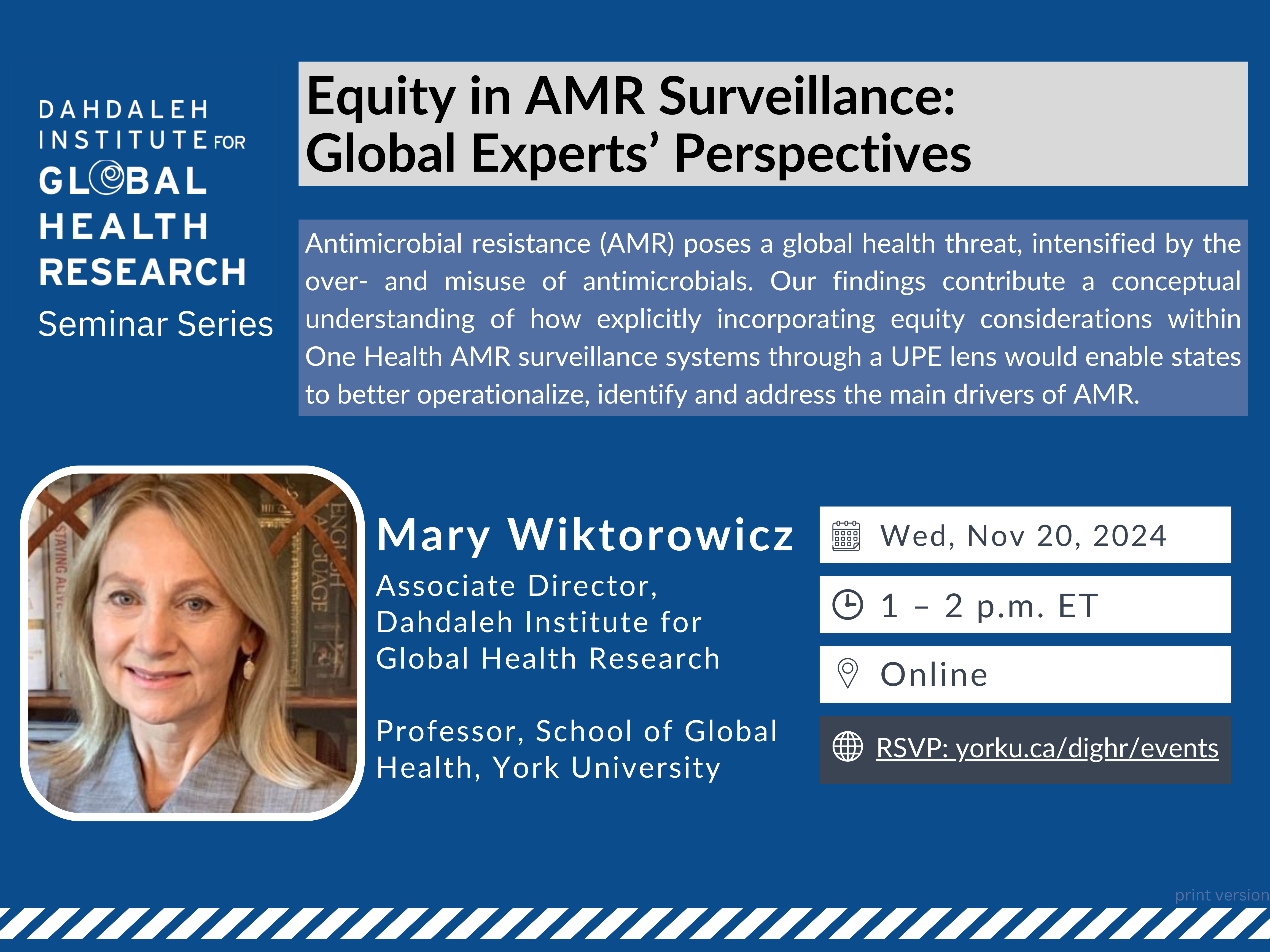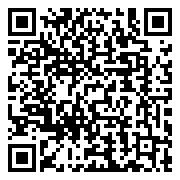Equity in AMR Surveillance: Global Experts’ Perspectives, with Mary Wiktorowicz
Antimicrobial resistance (AMR) poses a global health threat, intensified by the over- and misuse of antimicrobials. In an urbanized world, antimicrobial use and AMR are interwoven with uneven development and increasing socioeconomic demands that shape nature-society relations, placing vulnerable groups at increased risk of resistant infections, highlighting the need to address inequities escalating AMR. While equity considerations are integral to AMR governance, the relevance for AMR surveillance systems has not been fully conceptualized and limited practical guidance and evidence informs its operationalization.

An urban political economy (UPE) lens is used to both conceptualize and support operationalization of equity in the governance of AMR surveillance. Key informant interviews were conducted with experts engaged in all four agencies of the Quadripartite Joint Secretariat on AMR, national government agencies, academia and the private sector. Our findings contribute a conceptual understanding of how explicitly incorporating equity considerations within One Health AMR surveillance systems through a UPE lens would enable states to better operationalize, identify and address the main drivers of AMR.

Speaker Profile
Mary Wiktorowicz is Professor in the School of Global Health, Associate Director of the Dahdaleh Institute for Global Health Research and member of the WHO Collaborating Centre on the Global Governance of Antimicrobial resistance (AMR) at York University. In the JPIAMR and NFRF-funded projects she leads, she compares the governance of antimicrobial stewardship across several states (Netherlands, Hungary, Senegal, Philippines, Rwanda, Ecuador, Brazil and Canada) and five continents to identify effective and equitable governance approaches.
She also assesses the global governance of deep pandemic prevention to assist in identifying approaches that foster the prevention of zoonotic emergence including through regulation of wildlife trade. Her research also assesses global and state governance frameworks underlying programs that support women's and children's health in Sub-Saharan Africa.
Register below and join us on Wednesday, November 20, at 1 p.m. ET
RSVP
Registration for this event has closed.
Thank you for your interest in this seminar. Please find the recap and recording here.

